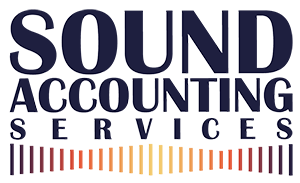HMRC recently updated its advice regarding electronic invoicing. The trouble is it’s long-winded and tricky to follow. Is there an easier way to meet HMRC’s current requirements for electronic record keeping?
Digital documents
In the past HMRC insisted that businesses keep a piece of paper for every transaction, but these days in most instances a digital copy will do. In fact, a paper version might not be required in the first place. However, if you’re switching to digital you need to follow a few simple rules.
Sales invoices
HMRC’s Notice 700/63 was updated in March 2014 to take account of changes in IT over the last few years and the more recent EU regulations on electronic invoicing (e-invoicing). The guide runs into 15 mind-numbing pages, but if you’re considering going down the digital path you can avoid the hassle of ploughing through it.
Tip 1. Virtually all electronic invoice software designed for the UK market complies with both EU and UK VAT rules. So unless you’re going to create your own e-invoices you won’t need to worry about studying the latest advicefrom HMRC.
Tip 2. When considering e-invoicing software look for one that will transfer the invoice data directly to your bookkeeping records – most will (see The next step ). This is a great timesaver and the cost of the software isn’t significant. In fact, basic systems can be obtained for free.
Purchase invoices
While it’s your decision whether to opt for electronic sales invoicing, that’s not the case for purchase documents. You can’t insist suppliers use them for purchases you make. Plus, there are those pesky petty cash and staff expenses to deal with for which e-invoices aren’t an option.
Tip 1. If you’re intent on keeping paperless records, you’re allowed to scan the original documents and then dispose of them. HMRC will allow it for VAT and other records, e.g. PAYE and corporation tax. But the scanned version must be faithful to the original. For example, you mustn’t use optical character recognition to convert invoices etc. into text files.
Tip 2. Software and online services can speed up the process of converting and storing your purchase invoices, employee expenses etc. (see The next step ). However, there’s less choice than for sales e-invoicing. The cost generally depends on the level of service you want and how many transactions are involved. Phone around to obtain the best price.
Trap. HMRC requires that businesses must organise records in such a way that they can be readily identified and linked with the transaction to which they relate. So if you’re considering DIY scanning, make sure you have a referencing system and, naturally, keep back-up copies of your data.
Exceptions
For the time being there are two types of document that HMRC insists must be kept in paper form: dividend vouchers and bank interest certificates. Of course, you can scan and store them digitally with your other records, but you must also retain the paper version in case HMRC pays a visit to inspect your records.
The next step
For where to find e-invoicing software and information on electronic storage software and services, visithttp://tipsandadvice-tax.co.uk/download (TX 14.14.04)
Reproduced with the permission of Indicator – FL Memo Limited. For subscription information call 01233 653500;
